
Iasi - The Cultural Heart of Romania
Nestled in the northeast corner of Romania, Iasi is a city steeped in history and cultural richness. Known as the cultural capital of Romania, Iasi boasts a vibrant arts scene, ancient churches, and a rich academic tradition. The city has been a center of Romanian culture for centuries and continues to be a beacon for literature, education, and the arts. A visit to Iasi is like stepping back in time. The city's iconic landmarks such as the Palas Iasi, the Palace of Culture, and the Metropolitan Cathedral offer a glimpse into Romania's rich architectural heritage. Wander through the cobbled streets and discover charming cafes, bustling markets, and beautiful parks. The Botanic Garden, one of the oldest in Romania, is a must-see for nature lovers. Iasi is also a city of learning. Home to the oldest university in Romania, the Alexandru Ioan Cuza University, the city attracts students from all over the world. The scholarly atmosphere permeates the city, making it a hub for intellectual and cultural exchange. Whether you're exploring the historic university library or attending a local art exhibit, you'll find that education and culture are at the heart of Iasi.
Local tips in Iasi
- Visit the Palace of Culture early in the morning to avoid crowds and fully enjoy its stunning architecture and exhibits.
- Explore Copou Park and the Botanical Garden, especially in spring and autumn, for beautiful natural scenery.
- Try local delicacies such as 'placinta' and 'sarmale' at traditional Romanian restaurants.
- Use public transport, which is efficient and affordable, to get around the city.
- Attend a cultural event at the Vasile Alecsandri National Theater, one of the oldest theaters in Romania.
Iasi - The Cultural Heart of Romania
Nestled in the northeast corner of Romania, Iasi is a city steeped in history and cultural richness. Known as the cultural capital of Romania, Iasi boasts a vibrant arts scene, ancient churches, and a rich academic tradition. The city has been a center of Romanian culture for centuries and continues to be a beacon for literature, education, and the arts. A visit to Iasi is like stepping back in time. The city's iconic landmarks such as the Palas Iasi, the Palace of Culture, and the Metropolitan Cathedral offer a glimpse into Romania's rich architectural heritage. Wander through the cobbled streets and discover charming cafes, bustling markets, and beautiful parks. The Botanic Garden, one of the oldest in Romania, is a must-see for nature lovers. Iasi is also a city of learning. Home to the oldest university in Romania, the Alexandru Ioan Cuza University, the city attracts students from all over the world. The scholarly atmosphere permeates the city, making it a hub for intellectual and cultural exchange. Whether you're exploring the historic university library or attending a local art exhibit, you'll find that education and culture are at the heart of Iasi.
When is the best time to go to Iasi?
Iconic landmarks you can’t miss
Palas Iasi
Explore the vibrant Palas Iași, a shopping mall and cultural landmark offering unique shopping, diverse dining, and stunning views in the heart of Iași.
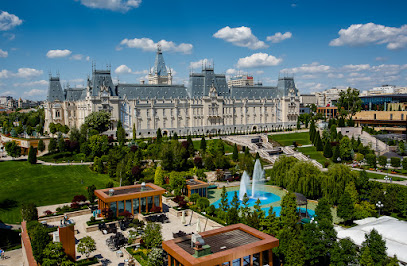
Palace of Culture
Discover the architectural beauty and rich cultural heritage of the Palace of Culture in Iași, a must-visit destination for culture enthusiasts and history lovers.
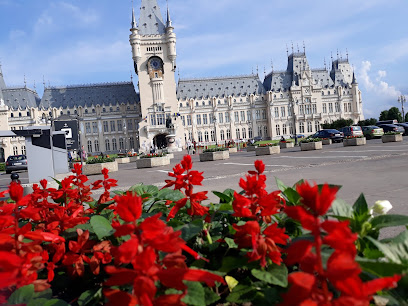
Metropolitan Cathedral Iasi
Discover the grandeur of the Metropolitan Cathedral in Iași, a breathtaking monument of spirituality and history nestled in the heart of Romania.
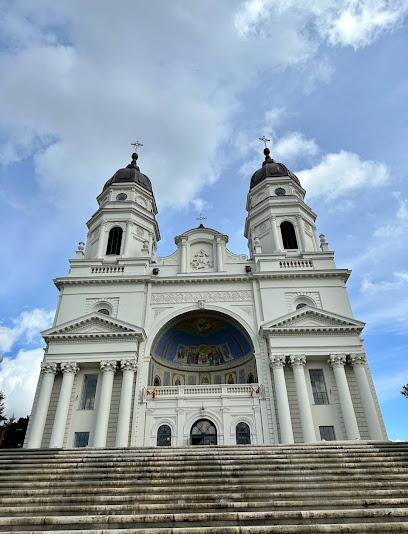
Anastasie Fătu Botanical Garden
Discover the enchanting Anastasie Fătu Botanical Garden, a serene escape filled with diverse flora and tranquil landscapes in Iași, Romania.
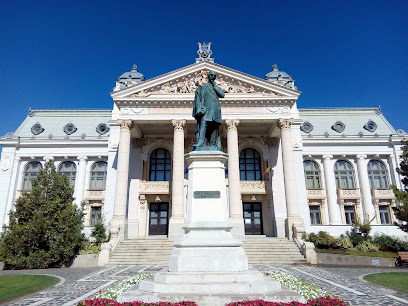
Copou Park
Explore the beauty and history of Copou Park, a tranquil haven in Iași, perfect for relaxation and cultural experiences amidst nature.
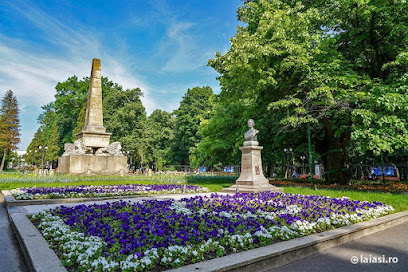
Cetățuia Monastery
Explore the serene beauty and rich history of Cetățuia Monastery, a captivating tourist attraction in Iași, Romania.
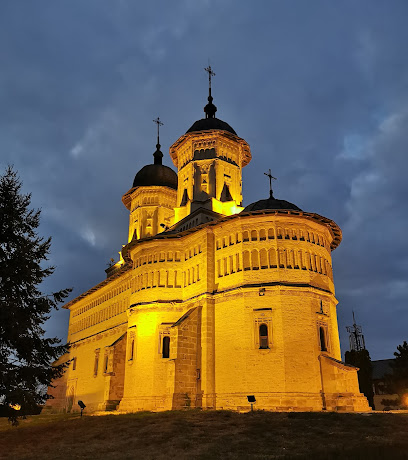
Golia Monastery
Explore Golia Monastery in Iași – a historical Orthodox sanctuary blending exquisite architecture with serene beauty, perfect for spiritual reflection and cultural immersion.
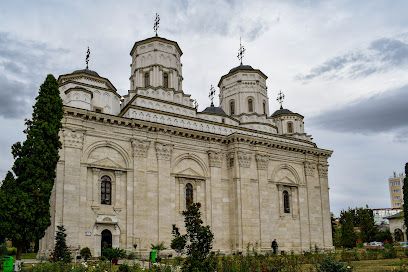
Union Square
Explore Union Square, a historical landmark in Iași, Romania, where culture, architecture, and vibrant city life converge in a beautiful setting.
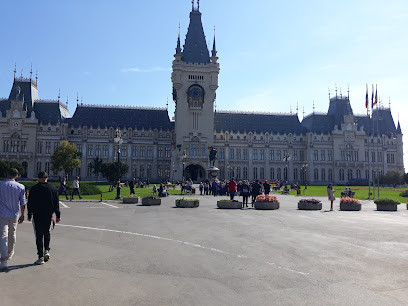
Galata Monastery
Discover the tranquil beauty and rich heritage of Galata Monastery in Iași, Romania's serene spiritual sanctuary surrounded by lush landscapes.
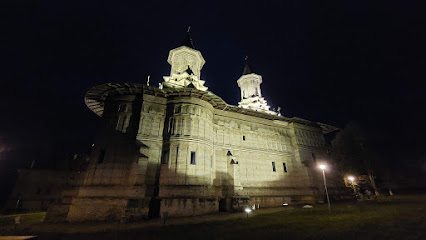
Union Museum - Princiary Residence
Explore the Union Museum in Iași, a key destination for understanding Romania's unification and rich cultural heritage.
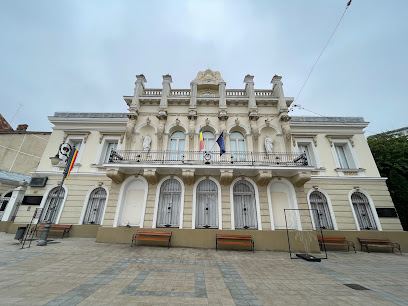
Frumoasa Monastery
Explore the serene beauty of Frumoasa Monastery in Iași, a historical Orthodox church nestled in lush landscapes, perfect for peaceful reflection.
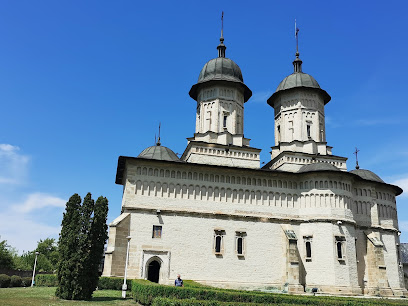
The Equestrian Statue of Stephen the Great
Discover the Equestrian Statue of Stephen the Great, a stunning tribute in Iași that combines rich history with beautiful park surroundings.
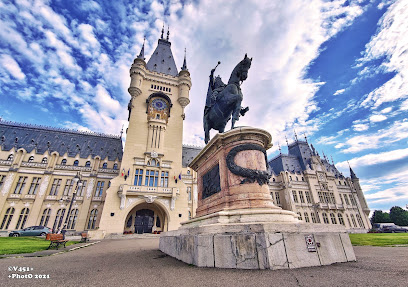
Saint Peter and Paul Monastery
Explore the serene beauty and rich history of Saint Peter and Paul Monastery, a remarkable Eastern Orthodox Church in Iași, Romania.
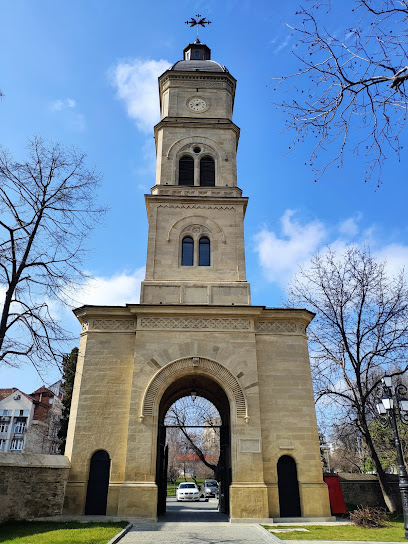
Romanian Literature Museum - Pogor Memorial House
Discover the legacy of Romanian literature at the Pogor Memorial House in Iași, a museum celebrating the life and works of great Romanian writers.
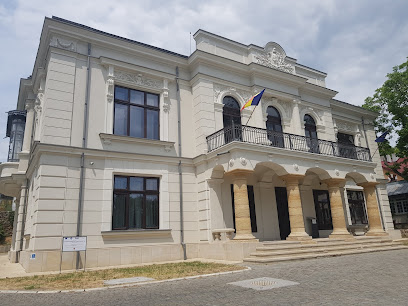
Banu Church
Discover the serene beauty and rich history of Banu Church, a prominent Orthodox sanctuary in the heart of Iași, Romania.
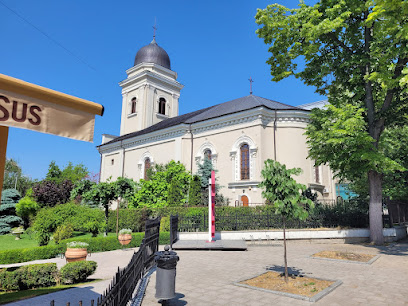
Unmissable attractions to see
Palace of Culture
Explore the Palace of Culture in Iași, a stunning architectural wonder showcasing Romania's rich history and art in a vibrant cultural hub.
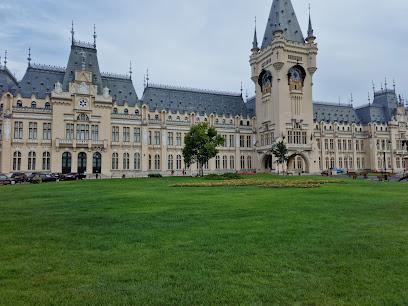
Metropolitan Cathedral Iasi
Explore the stunning beauty and rich history of the Metropolitan Cathedral in Iași, a symbol of faith and cultural heritage in Romania.
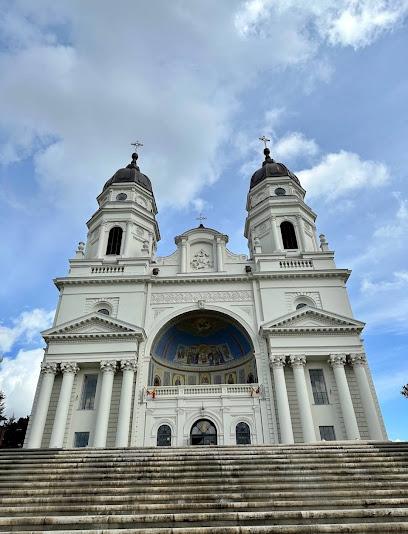
Anastasie Fătu Botanical Garden
Explore the breathtaking Anastasie Fătu Botanical Garden in Iași, where nature's beauty flourishes amidst diverse plant species and serene landscapes.
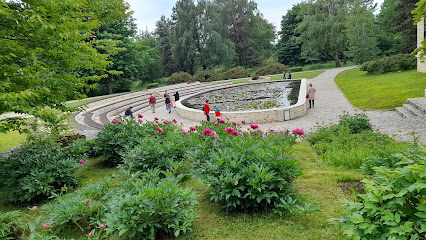
Copou Park
Explore Copou Park: a historical and natural gem in Iași, Romania, perfect for relaxation, cultural exploration, and outdoor activities.
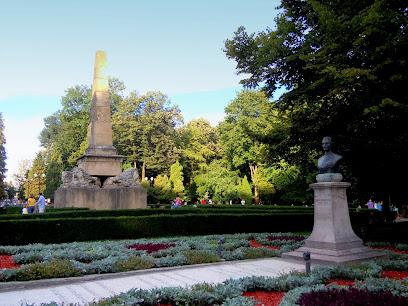
Eminescu's Linden Tree
Discover the serene beauty and literary heritage of Eminescu's Linden Tree in Iași, a tranquil park that celebrates nature and culture.
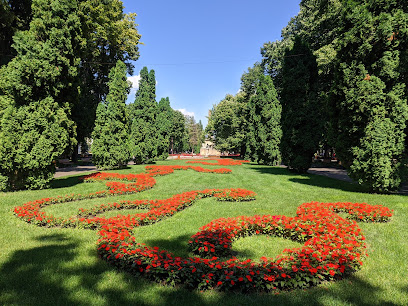
Vasile Alecsandri National Theater
Discover the charm of Romania's cultural heart at the Vasile Alecsandri National Theater, where art and history come alive.
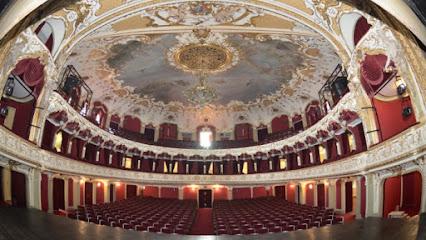
Bojdeuca lui Ion Creangă
Explore the literary legacy of Ion Creangă at Bojdeuca lui Ion Creangă, a must-visit museum in Iași, Romania, celebrating Romanian literature and culture.
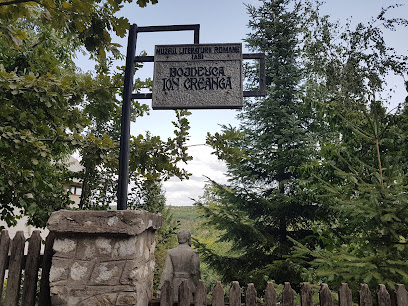
Cetățuia Monastery
Discover the serene beauty and historical significance of Cetățuia Monastery in Iași, a must-visit destination for tourists seeking peace and reflection.
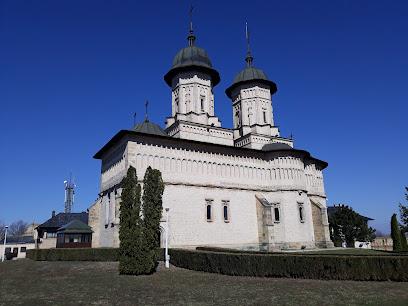
Golia Monastery
Discover the architectural beauty and spiritual tranquility of Golia Monastery in Iași, a key cultural landmark in Romania's rich history.
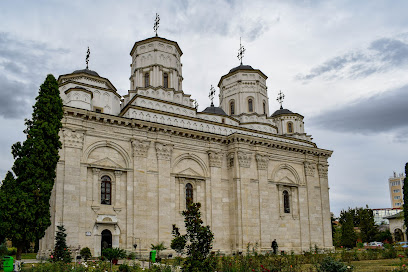
Sabin Bălaşa Frescoes Gallery
Explore the breathtaking Sabin Bălașa Frescoes Gallery in Iași, where art and history come alive through stunning frescoes and cultural heritage.
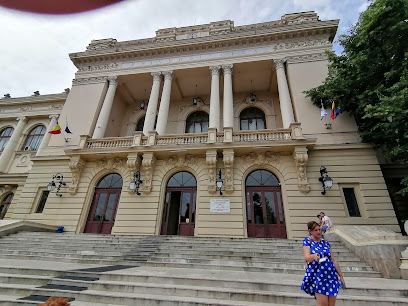
Galata Monastery
Experience the spiritual and cultural richness of Galata Monastery in Iași, a serene retreat with stunning architecture and lush surroundings.
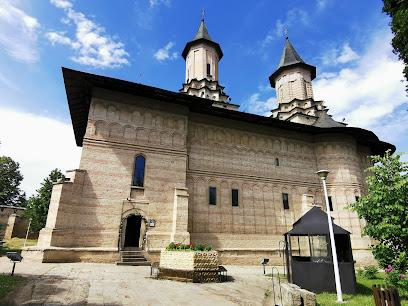
Union Museum - Princiary Residence
Explore rich history at the Union Museum - Princiary Residence in Iași, showcasing Romania's path to unification through engaging exhibits.
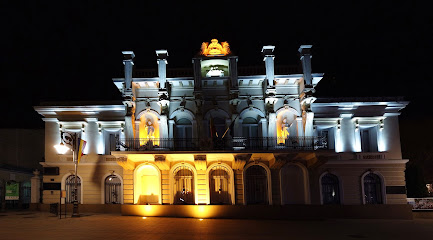
Frumoasa Monastery
Experience the tranquility and historical significance of Frumoasa Monastery, a stunning Orthodox sanctuary in Iași, Romania, perfect for spiritual reflection and exploration.
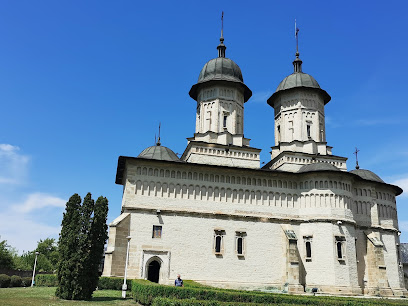
Crama Mircesti
Explore Crama Mircești in Moldova, a premier winery offering exquisite wines, vineyard tours, and a taste of local culture amidst stunning scenery.
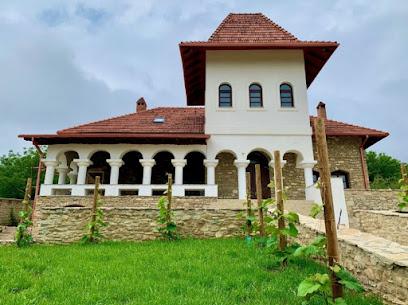
Biserica Sfântul Nicolae Domnesc
Discover the Biserica Sfântul Nicolae Domnesc, a stunning Orthodox church in Iași, where history, art, and spirituality converge in a breathtaking setting.
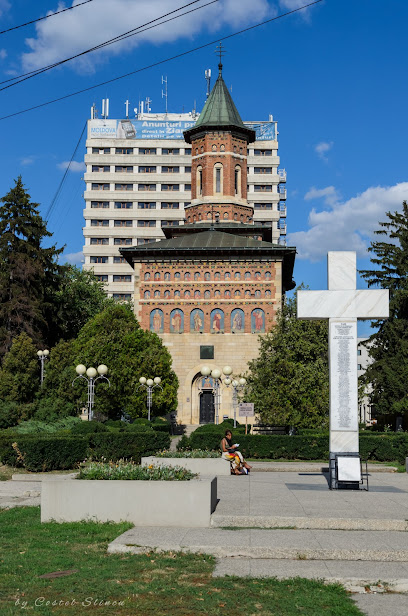
Essential places to dine
Mamma Mia
Experience authentic Italian cuisine at Mamma Mia in Iași—where every bite tells a story of flavor and tradition.
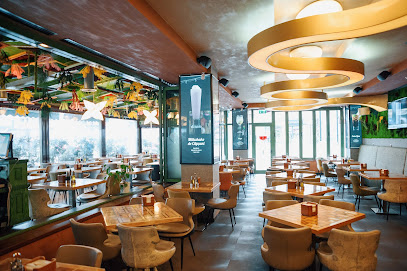
Oscar
Discover Oscar in Iași – where traditional Romanian flavors meet modern culinary creativity in an inviting atmosphere.
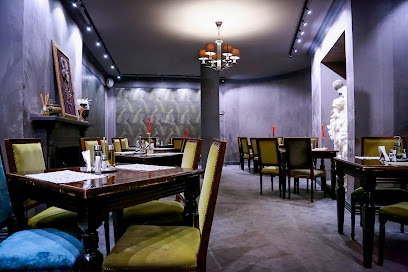
Vivo
Discover delicious hamburgers and vibrant ambiance at Vivo in Iași – your go-to spot for fast food with flair.
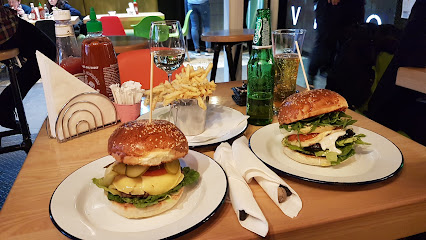
Fenice Palas Iași
Discover authentic Lebanese cuisine at Fenice Palas Iași – where every dish tells a story of flavor and tradition.
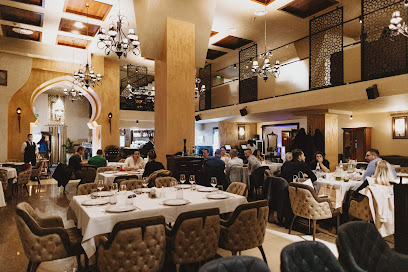
Little Texas
Experience the vibrant flavors of New American cuisine at Little Texas in Iași, where every meal is a celebration of taste and hospitality.
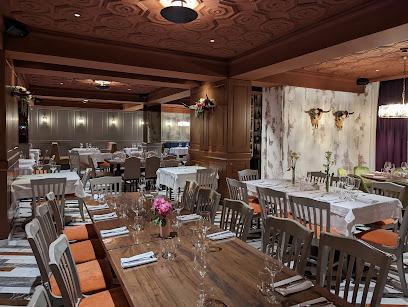
Beraria Veche
Discover Beraria Veche: A charming restaurant in Iași offering authentic Romanian cuisine in a cozy setting.
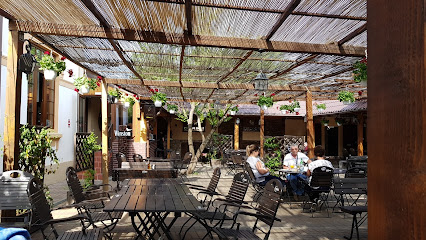
Blue Aqua
Discover exquisite seafood at Blue Aqua in Iași - where fresh flavors meet warm hospitality for an unforgettable dining experience.
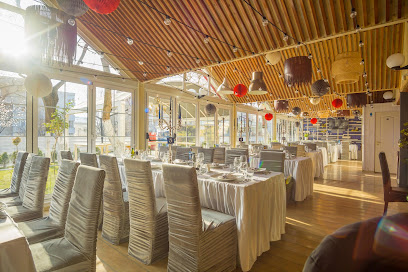
Casa Bolta Rece
Discover authentic Romanian flavors at Casa Bolta Rece in Iași – where tradition meets taste.
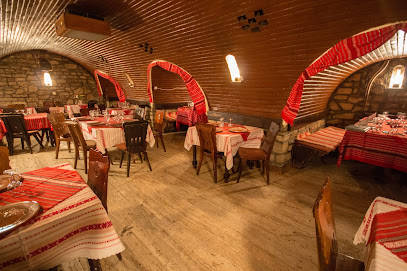
Tiki Bistro
Experience culinary diversity at Tiki Bistro in Iași, where Asian meets Mexican flavor in a cozy bistro setting.
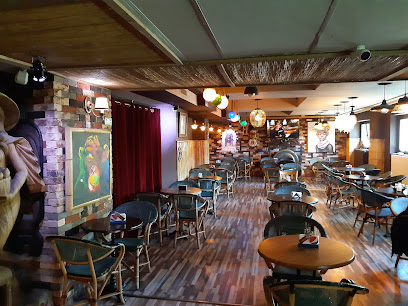
FireRibs
Experience mouth-watering barbecue at FireRibs in Iași – where flavor meets tradition in every bite.
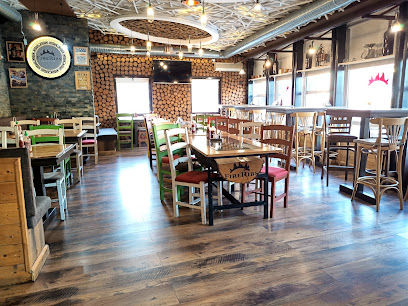
Krud
Experience authentic Romanian cuisine with a modern twist at Krud in Iași – where every meal becomes a memorable celebration.
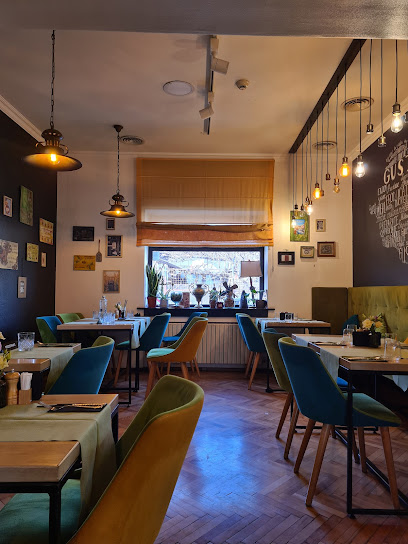
Buena Vista
Experience family-friendly dining at Buena Vista in Iași, where delicious food meets warm hospitality in a cozy atmosphere.
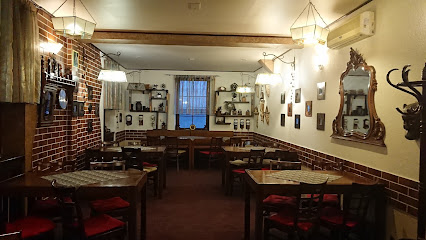
Toujours
Experience exquisite Romanian cuisine at Toujours in Iași, where every dish tells a story of tradition and flavor.
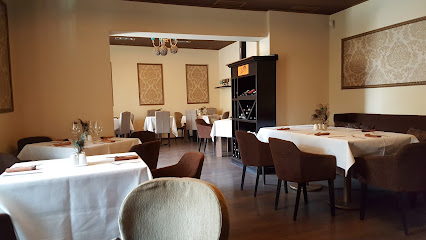
Atelierul de Bere
Discover authentic Romanian cuisine paired with exquisite local brews at Atelierul de Bere in Iași.
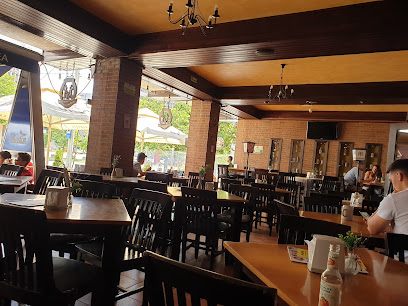
La Conac
Discover the taste of Romania at La Conac – where tradition meets flavor in every dish.
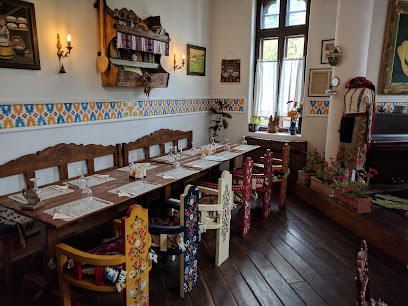
Markets, malls and hidden boutiques
Palas Iasi
Explore Palas Iasi: A vibrant shopping mall blending retail, dining, and entertainment in the heart of Iași, Romania.
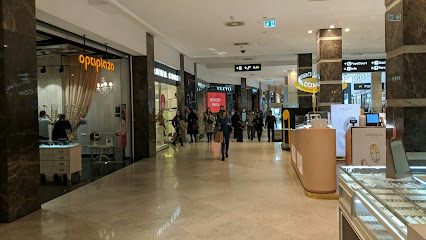
Iulius Mall
Discover the ultimate shopping and entertainment experience at Iulius Mall, Iași's premier shopping destination with diverse retail and dining options.
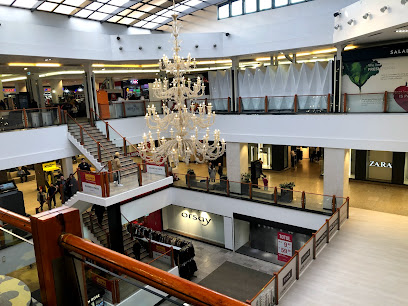
ERA Shopping Park Iași
Experience the best of shopping, dining, and entertainment at ERA Shopping Park in Iași, Romania's premier retail destination.
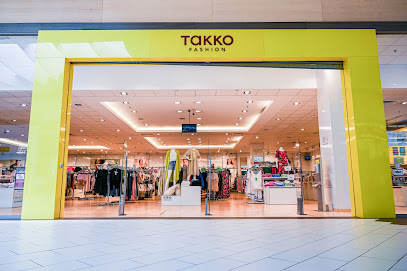
Intersport
Discover top-quality sports gear and apparel at Intersport in Iași, your premier destination for all things sporty in Iulius Mall.
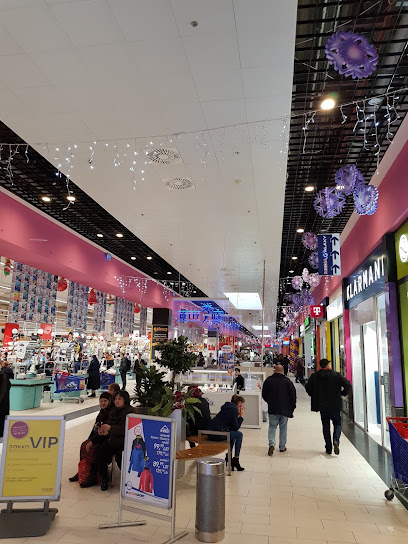
Zara
Discover the latest fashion trends at Zara in Iași, where style meets affordability for the modern traveler.
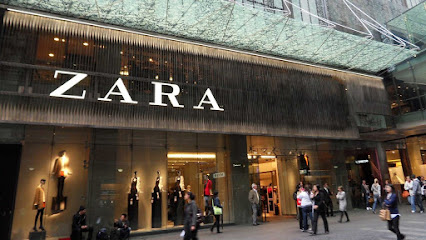
Bobo Shop - Cadouri - Palas Mall Iași
Discover unique gifts and local treasures at Bobo Shop, your go-to destination in Palas Mall Iași for beauty, home, and kitchen supplies.
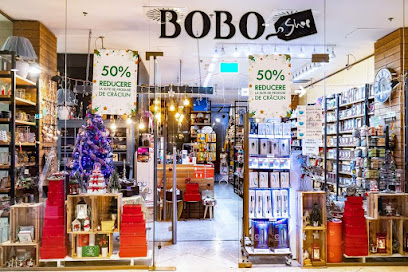
The Very Shop
Explore the charm of The Very Shop in Iași, where local wines and unique gifts await to make your visit unforgettable.
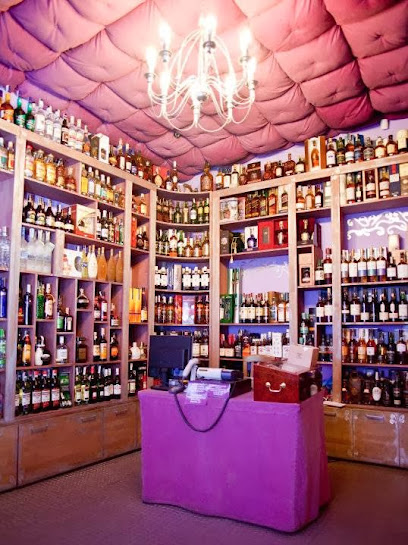
Nike Store
Explore the Nike Store in Iași, where innovative sportswear meets urban style in a vibrant shopping experience.
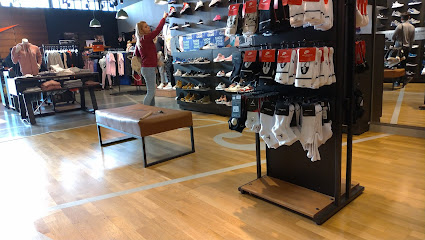
VOGUE OUTLET
Discover fashion at unbeatable prices at VOGUE OUTLET, Iași's top destination for stylish clothing and amazing deals.
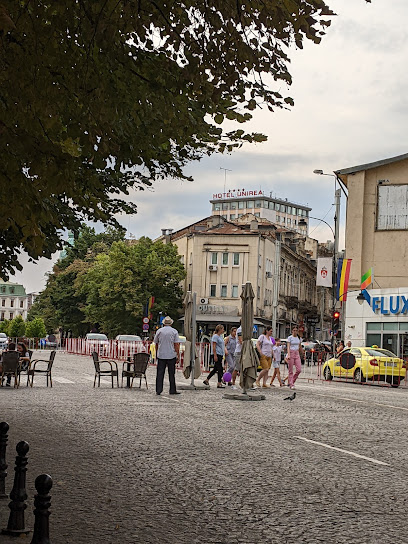
ZARA
Discover trendy fashion at ZARA in Iași's Iulius Mall, offering a diverse range of chic clothing and accessories for every style.
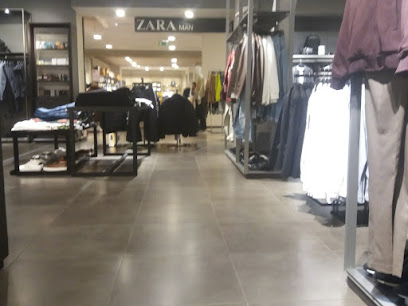
H&M
Discover trendy and affordable fashion for all ages at H&M in Iași, where style meets sustainability. Shop the latest collections today!
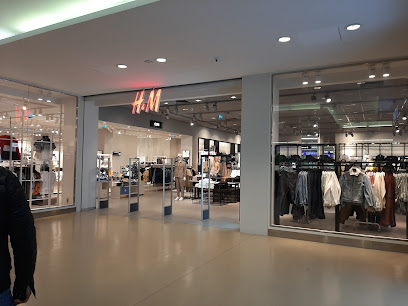
DIVINO Wineshop Iași - Magazin de vinuri & distilate
Explore the Best of Romanian Wines at DIVINO Wineshop Iași - Your Destination for Quality Wines and Spirits.
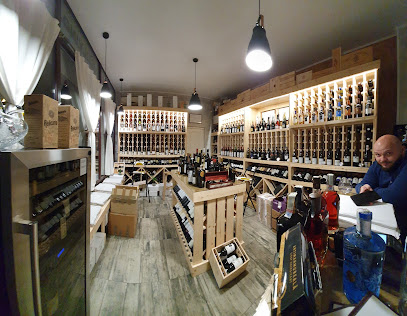
Bershka
Explore the latest fashion trends at Bershka in Iași, where style meets affordability for the fashionable traveler.
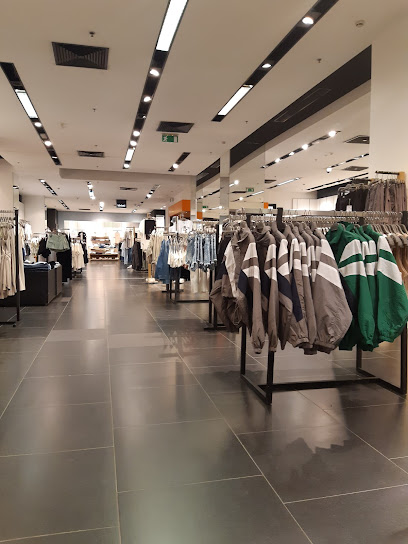
Terranova
Discover diverse fashion styles for the whole family at Terranova, Iași's premier clothing store with trendy selections and affordable pricing.
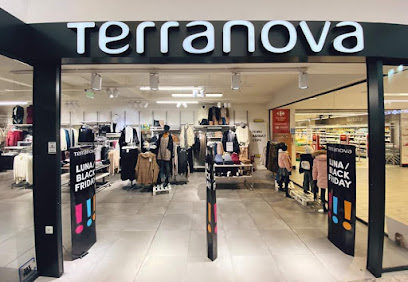
Alle Boutique
Shop at Alle Boutique for trendy women's clothing and unique local accessories in the heart of Iași, Romania.
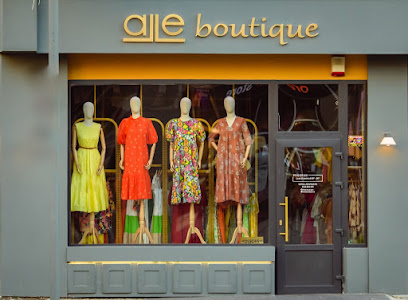
Essential bars & hidden hideouts
Beer Zone
Explore the vibrant flavors of craft beer and delicious cuisine at Beer Zone, a premier brewpub in Iași, perfect for every beer lover.
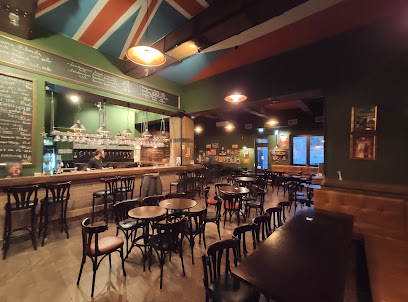
Legend Pub
Discover the lively atmosphere of Legend Pub in Iași, where local brews and vibrant nightlife meet for an unforgettable experience.
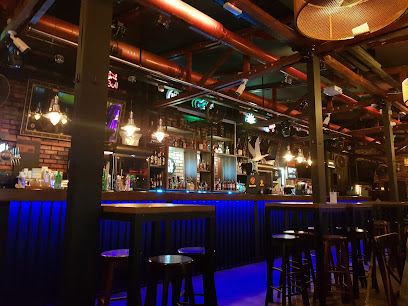
The Trumpets
Experience the lively ambiance and delicious drinks at The Trumpets in Iași, a must-visit pub for all travelers seeking nightlife excitement.
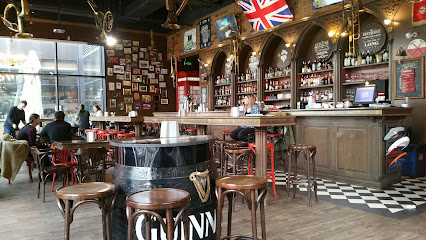
Time Out
Discover the vibrant nightlife of Iași at Time Out, a lively bar offering a perfect blend of drinks, ambiance, and social connections.
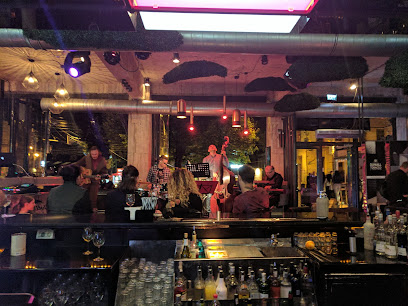
La Bază
Experience the vibrant nightlife at La Bază, a charming bar offering a delightful selection of drinks and a welcoming atmosphere in the heart of the city.
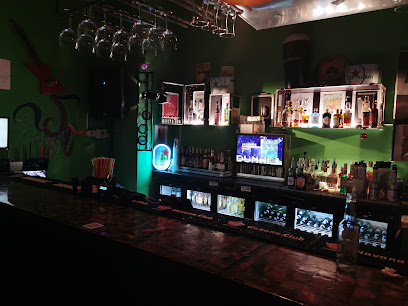
Rock'n'Rolla
Experience the vibrant nightlife of Iași at Rock'n'Rolla, where great drinks and live music create unforgettable memories.
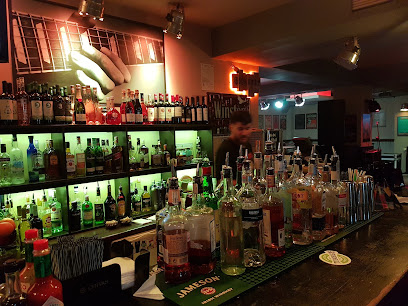
College Bar
Experience the lively ambiance and delectable grilled dishes at College Bar in Iași, the perfect spot for food lovers and nightlife enthusiasts.
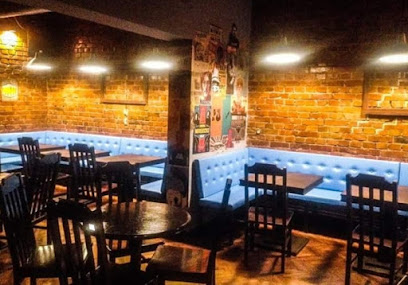
Oxford Pub
Experience the vibrant nightlife at Oxford Pub in Iași, where great drinks, live music, and an electric atmosphere await you.
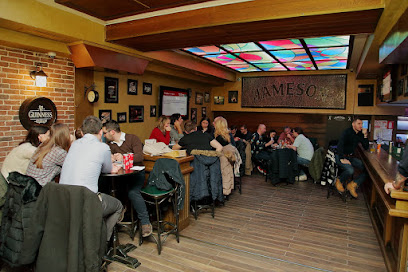
Max bar
Experience the vibrant nightlife of Iași at Max Bar, a lively spot for drinks, dance, and unforgettable evenings.
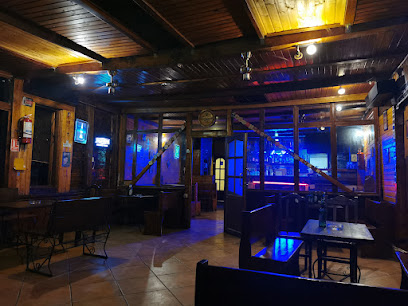
Hunters Pub
Discover the vibrant atmosphere of Hunters Pub in Iași, where delicious food meets local culture in a cozy setting.
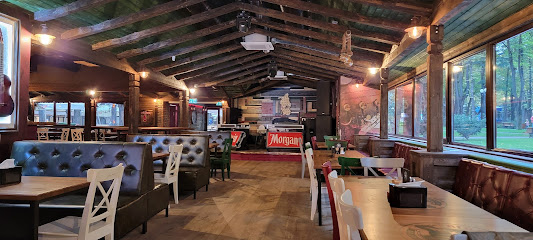
Radio Gaga English Pub
Experience the vibrant atmosphere of Radio Gaga English Pub in Iași, where great drinks, live music, and delicious food come together for an unforgettable night.
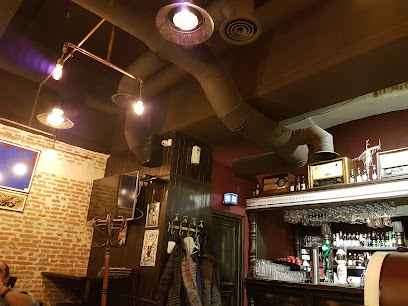
Taverna Music-Pub
Discover the vibrant nightlife at Taverna Music-Pub in Iași – a lively bar with live music and a great drink selection.
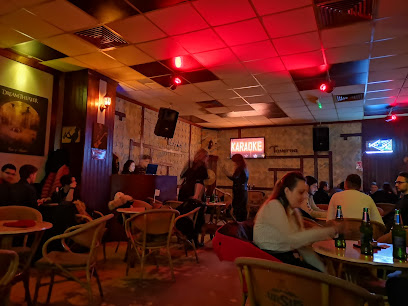
Oddity
Discover the vibrant nightlife of Iași at Oddity Cocktail Bar, renowned for its innovative cocktails and welcoming atmosphere.
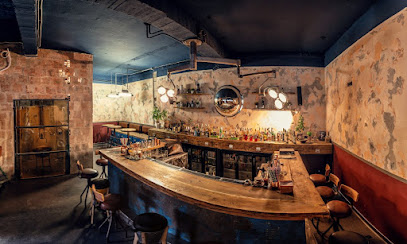
Șotărie - croitoria de shoturi
Discover the ultimate nightlife experience at Șotărie - Croitoria de Shoturi in Iași, where crafted shots meet electrifying music.
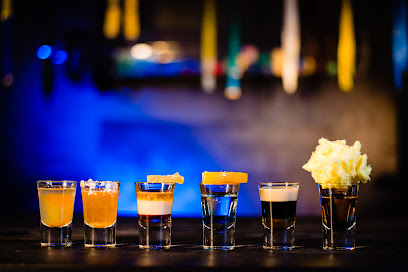
Local Phrases
-
- HelloSalut
[sah-loot] - GoodbyePa
[pah] - YesDa
[dah] - NoNu
[noo] - Please/You're welcomeTe rog
[teh rohg] - Thank youMulțumesc
[mool-tsoo-mesk] - Excuse me/SorryScuzați-mă
[skoo-zah-tzuh mah] - How are you?Ce mai faci?
[cheh my fahch?] - Fine. And you?Bine. Și tu?
[bee-neh. shi too?] - Do you speak English?Vorbiți engleză?
[vor-beetz eng-leh-zah?] - I don't understandNu înțeleg
[noo in-tseh-leg]
- HelloSalut
-
- I'd like to see the menu, pleaseAș dori să văd meniul, vă rog
[ush doh-ree suh vud meh-nyool, vuh rog] - I don't eat meatNu mănânc carne
[noo muh-nuhnk kahr-neh] - Cheers!Noroc!
[noh-rohk] - I would like to pay, pleaseAș dori să plătesc, vă rog
[ush doh-ree suh pluh-tesk, vuh rog]
- I'd like to see the menu, pleaseAș dori să văd meniul, vă rog
-
- Help!Ajutor!
[ah-yoo-tor] - Go away!Du-te!
[doo-teh] - Call the Police!Apelați Poliția!
[ah-peh-lahts poh-lee-tsya] - Call a doctor!Apelați un doctor!
[ah-peh-lahts oon dohk-tohr] - I'm lostM-am rătăcit
[mahm ruh-tuh-cheet] - I'm illSunt bolnav
[soont bohl-nahv]
- Help!Ajutor!
-
- I'd like to buy...Aș dori să cumpăr...
[ush doh-ree suh koom-puhr] - I'm just lookingDoar mă uit
[doh-ahr muh ooeet] - How much is it?Cât costă?
[kaht kohs-tuh?] - That's too expensiveEste prea scump
[yehs-teh prah skoomp] - Can you lower the price?Puteți să reduceți prețul?
[poo-tehts suh reh-doo-chets preh-tsool?]
- I'd like to buy...Aș dori să cumpăr...
-
- What time is it?Cât este ora?
[kaht yehs-teh oh-rah?] - It's one o'clockEste ora unu
[yehs-teh oh-rah oonoo] - Half past (10)Jumătate (zece)
[joo-muh-ta-teh zeh-cheh] - MorningDimineața
[dee-mee-neh-tsa] - AfternoonDupă-amiază
[doo-puh ah-mee-ah-zah] - EveningSeara
[seh-ah-rah] - YesterdayIeri
[yehr] - TodayAstăzi
[ah-stuhz] - TomorrowMâine
[muh-ee-neh] - 1Unu
[oo-noo] - 2Doi
[doy] - 3Trei
[tray] - 4Patru
[paht-roo] - 5Cinci
[cheen-chee] - 6Șase
[shah-seh] - 7Șapte
[shahp-teh] - 8Opt
[opt] - 9Nouă
[noo-uh] - 10Zece
[zeh-cheh]
- What time is it?Cât este ora?
-
- Where's a/the...?Unde este unul/o...
[oon-deh yehs-teh oo-noo/oh...] - What's the address?Care este adresa?
[cah-reh yehs-teh ah-dreh-sah?] - Can you show me (on the map)?Puteți să-mi arătați (pe hartă)?
[poo-tehts suh-mee ah-rah-tahts (peh hahr-tuh)?] - When's the next (bus)?Când este următorul (autobuz)?
[kahnd yehs-teh oor-muh-toh-rool (ow-toh-booz)?] - A ticket (to ....)Un bilet (spre ....)
[oon bee-let (spreh ....)]
- Where's a/the...?Unde este unul/o...
History of Iasi
-
Iasi, often referred to as the cultural capital of Romania, has a rich history that dates back to the 14th century. Its founding is attributed to the Moldavian voivode (prince) Alexandru cel Bun, who established the city as a significant administrative and commercial center in 1408. The city was strategically located on trade routes, fostering its growth and importance in the region.
-
The 17th century marked a golden age for Iasi, under the rule of Vasile Lupu, the Moldavian prince who reigned from 1634 to 1653. During his reign, Iasi flourished culturally and economically. Vasile Lupu was a great patron of the arts and education, founding the Princely Academy in 1640 and commissioning the construction of the Trei Ierarhi Monastery, an architectural marvel known for its intricate stone carvings and unique design.
-
The 18th century saw Iasi under the influence of the Phanariots, Greek administrators appointed by the Ottoman Empire. This period, although marked by heavy taxation and political instability, also saw the introduction of new architectural styles and cultural influences. The city maintained its status as a key center of learning and culture, with the establishment of numerous schools and churches.
-
A pivotal moment in Iasi's history occurred in 1859 with the Union of the Principalities of Moldavia and Wallachia, leading to the formation of modern Romania. Iasi played a crucial role in this unification process, serving as the capital of Moldavia. Alexandru Ioan Cuza, the first ruler of the united principalities, was proclaimed the ruler in Iasi, cementing the city's place in Romanian history.
-
During World War I, Iasi became the temporary capital of Romania from 1916 to 1918 after Bucharest fell to the Central Powers. This period was one of great hardship but also resilience, as the city hosted the Romanian government, royal family, and thousands of refugees. The city's role as a safe haven during the war is a testament to its strategic and cultural significance.
-
Iasi has long been recognized as a major center of culture and education. The University of Iasi, established in 1860, is one of the oldest and most prestigious universities in Romania. The city is also home to numerous theaters, museums, and cultural institutions, including the Vasile Alecsandri National Theater and the Palace of Culture, which houses four different museums. These institutions have played a pivotal role in preserving and promoting Romanian culture and heritage.
-
Today, Iasi is a vibrant city that blends its rich historical past with modern development. It remains a crucial academic and cultural hub, attracting students and tourists from around the world. The city's historical landmarks, such as the Copou Park, the Golia Monastery, and the Union Square, continue to draw visitors interested in exploring Iasi's unique heritage and dynamic present.
Iasi Essentials
-
Iasi is accessible via air, rail, and road. The Iasi International Airport (IAS) connects the city to various European destinations. From the airport, you can take a taxi, bus, or rent a car to get into the city. If you prefer traveling by train, Iasi is well-connected to other major Romanian cities like Bucharest through CFR (Romanian Railways). Buses and coaches also offer services from various cities, and driving is an option for those who prefer road trips.
-
Public transportation in Iasi includes buses and trams operated by Compania de Transport Public Iasi (CTP Iasi). Tickets can be purchased at kiosks or directly from the driver. Taxis are readily available and can be hailed on the street or booked via apps. Ride-sharing services like Uber and Bolt are also operational. For a more local experience, you can rent a bike or walk, as many attractions are within walking distance.
-
The official currency in Romania is the Romanian Leu (RON). Credit and debit cards are widely accepted in hotels, restaurants, and shops. However, it's advisable to carry some cash, especially for smaller establishments or markets. ATMs are widely available across the city for cash withdrawals.
-
Iasi is generally a safe city for tourists. Standard precautions should be taken to avoid petty crimes like pickpocketing, especially in crowded areas such as public transport, markets, and tourist attractions. Avoid poorly lit areas at night and always keep an eye on your belongings. While there are no specific high-crime areas targeting tourists, staying vigilant is always a good practice.
-
In case of emergency, dial 112 for immediate assistance, which connects you to police, fire, and medical services. Major hospitals in Iasi include the Sf. Spiridon Hospital and the Iasi County Emergency Hospital. Pharmacies are widely available for minor health issues. Ensure you have travel insurance that covers medical emergencies.
-
Fashion: Do dress modestly, especially when visiting religious sites. Avoid overly revealing clothing. Religion: Do respect local customs and traditions. When visiting churches, dress conservatively and cover your head. Public Transport: Do be respectful and offer your seat to elderly passengers. Don't eat or drink on public transport. Greetings: Do greet people with a handshake. A slight bow of the head is also a sign of respect. Eating & Drinking: Do try local delicacies and accept food offerings graciously. Don’t refuse hospitality, as it is considered impolite.
-
To experience Iasi like a local, visit the local markets such as Piata Alexandru cel Bun for fresh produce and traditional goods. Engage with locals, who are often friendly and willing to share their stories. Don't miss the famous Copou Park, perfect for a leisurely stroll. For a unique cultural experience, attend a performance at the Vasile Alecsandri National Theatre. Additionally, try local dishes like 'mici' and 'sarmale' at traditional restaurants.
Trending Landmark in Iasi
-
Palas Iasi
-
Palace of Culture
-
Metropolitan Cathedral Iasi
-
Anastasie Fătu Botanical Garden
-
Copou Park
-
Cetățuia Monastery
-
Golia Monastery
-
Union Square
-
Galata Monastery
-
Union Museum - Princiary Residence
-
Frumoasa Monastery
-
The Equestrian Statue of Stephen the Great
-
Saint Peter and Paul Monastery
-
Romanian Literature Museum - Pogor Memorial House
-
Banu Church
Nearby Cities to Iasi
-
Things To Do in Orhei
-
Things To Do in Chișinău
-
Things To Do in Suceava
-
Things To Do in Tiraspol
-
Things To Do in Focsani
-
Things To Do in Chernivtsi
-
Things To Do in Brasov
-
Things To Do in Sighisoara
-
Things To Do in Vinnytsia
-
Things To Do in Khmelnytskyi
-
Things To Do in Ivano-Frankivsk
-
Things To Do in Ternopil
-
Things To Do in Cluj-Napoca
-
Things To Do in Baia Mare
-
Things To Do in Bucharest














